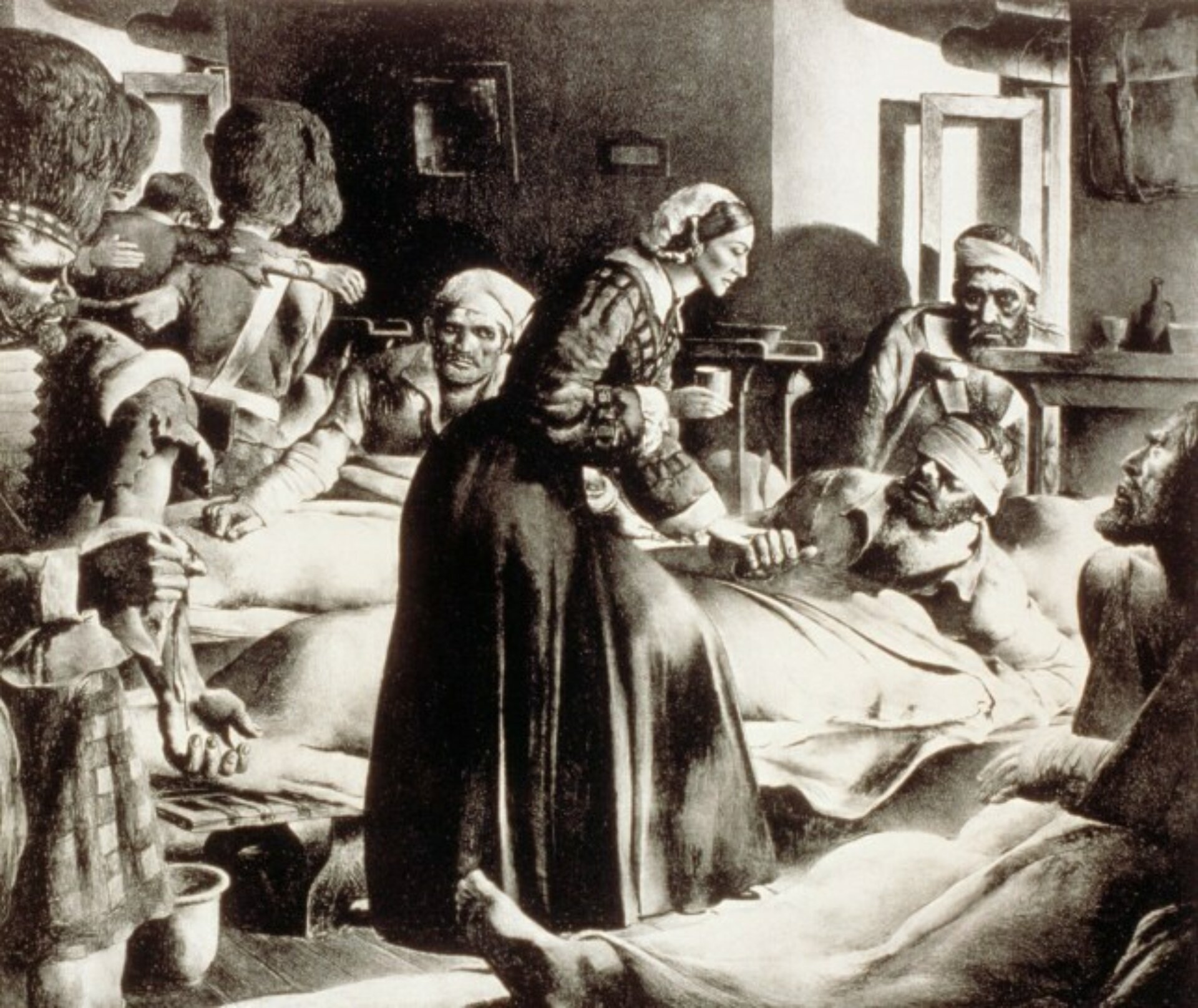Florence Nightingale: Local Lass
Florence Nightingale changed the face of nursing and healthcare forever. Carolyn Leary talks to local nurse Ian Carey about Florence’s incredible work and its relevance in the time of Covid-19.

200 years ago the birth of Florence Nightingale on 12 May 1820 marked the start of the life of a remarkable woman who changed the face of nursing, health care and sanitation. The date is commemorated annually as International Nurses Day, International Day for CFS/ME (chronic fatigue syndrome/myalgic encephalomyelitis) and also for Fibromyalgia.
This year as part of Sheffield ME and Fibromyalgia Group’s #MillionsMissing event the group’s chair, Carolyn Leary, interviewed Ian Carey, a local nurse with a keen interest in the story of Florence Nightingale.Florence is often thought of as ‘the lady with the lamp’ who tended wounded soldiers during the Crimean War and watched over them day and night. But Ian feels this does not do justice to the remarkable woman she was, particularly in the Victorian era.“
She was a campaigner, a data scientist, a public health nurse. She is clearly associated with nursing, and rightly so, but she developed the concept of trained people delivering nursing care”.
At that time, nursing was looked down on by society, so much so that it was even compared to prostitution. “Florence was a fantastic organiser. She got the army organised. Her recording of data led her to conclude that if you were a soldier wounded on the battlefield, you were better staying there.”
Any patient in the army hospital ran the risk of picking up many diseases as there was no sanitation or ventilation. Florence helped the army to develop the policies and the training to implement them and then transferred this practice to civilian life. Sanitation did not exist in the army. Human waste was dumped behind the hospitals. She identified that effective waste disposal and clean running water was essential, alongside frequent hand-washing.
At that time bacteria were not fully understood and viruses were not even recognised. Florence saw that transmission was taking place between people and she made the life-saving observation that hand-washing was the most important thing to prevent this.
Born in Florence, she would spend most of her early life, and certainly most of her summers, at Lea Hurst in Matlock. She was a frequent visitor to see her grandmother who lived at Sheffield's Tapton Hall - not the current Tapton Hall, but on the same site - and would attend services at Sheffield Cathedral.“
I think we can say in Sheffield that she’s a local lass. I have often been round by the tram stop, thinking Florence Nightingale would have walked these streets, coming and going, which is truly remarkable, and sadly I don’t think this is recognised in Sheffield, and maybe it’s time we did something about that”.
In 1860, Florence established the first professional nursing school in the world at St Thomas’s Hospital. She founded London’s Nightingale School of Nursing, which raised the reputation of nursing as a profession.

Ian Carey.
Florence’s legacy includes not only her extensive use of data as evidence, but she used the pie chart and other visual representations to present her findings. In her most seminal work, which she wrote while bed bound, she used what we would now call informatics – graphic representational diagrams to show the transmission of infection and disease - which had a huge impact. Another key achievement was her influence on the 1875 Public Health Act, which brought in effective sanitation to major towns and cities and gave control to local authorities.
Although she came from a very privileged background, Florence fought hard to see everyone gain the health benefits from clean drinking water and effective sewerage.
She was the first person to set up a triage system in the army whereby soldiers were treated according to need and urgency, rather than rank. The story goes that she took a hammer one night to the medical stores to access supplies needed by the soldiers that she had previously been denied by officers. She is also reputed to have been fierce in her determination, insisting nurses washed their hands. We believe that she would be a proud defender of the NHS.
At the age of 38 Florence became bedbound and remained so for most of the rest of her life. While it is widely acknowledged that she had some form of post-viral symptoms from a fever contracted in Crimea, her diary documents widespread pain, fatigue and mental cloudiness for the next 40 or so years, symptoms we would now associate with ME.
Florence Nightingale’s relevance to the present day is striking. The hospitals built to support Covid-19 patients have all been named after her. The critical element of hygiene that makes a difference to people catching Covid-19 is hand-washing and increasing numbers of people are finding that their recovery from Covid-19 is a long, slow and variable journey.
Sheffield ME and Fibromyalgia Group have set up a Facebook support group for those in South Yorkshire and North Derbyshire experiencing long-haul COVID.





